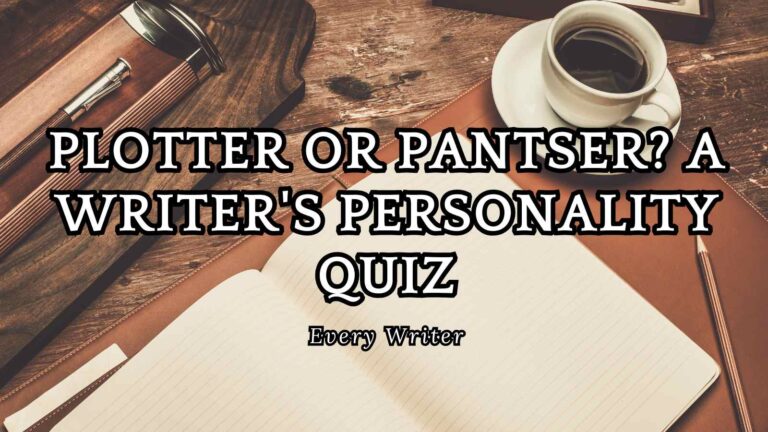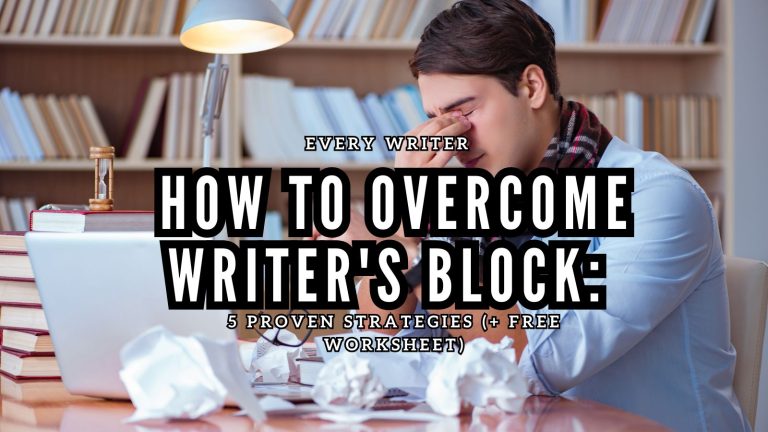CHAPTER I.
Nothing is more painful to the human mind, than, after the feelings have been worked up by a quick succession of events, the dead calmness of inaction and certainty which follows, and deprives the soul both of hope and fear. Justine died; she rested; and I was alive. The blood flowed freely in my veins, but a weight of despair and remorse pressed on my heart, which nothing could remove. Sleep fled from my eyes; I wandered like an evil spirit, for I had committed deeds of mischief beyond description horrible, and more, much more, (I persuaded myself) was yet behind. Yet my heart overflowed with kindness, and the love of virtue. I had begun life with benevolent intentions, and thirsted for the moment when I should put them in practice, and make myself useful to my fellow-beings. Now all was blasted: instead of that serenity of conscience, which allowed me to look back upon the past with self-satisfaction, and from thence to gather promise of new hopes, I was seized by remorse and the sense of guilt, which hurried me away to a hell of intense tortures, such as no language can describe.
This state of mind preyed upon my health, which had entirely recovered from the first shock it had sustained. I shunned the face of man; all sound of joy or complacency was torture to me; solitude was my only consolation—deep, dark, death-like solitude.
My father observed with pain the alteration perceptible in my disposition and habits, and endeavoured to reason with me on the folly of giving way to immoderate grief. “Do you think, Victor,” said he, “that I do not suffer also? No one could love a child more than I loved your brother;” (tears came into his eyes as he spoke); “but is it not a duty to the survivors, that we should refrain from augmenting their unhappiness by an appearance of immoderate grief? It is also a duty owed to yourself; for excessive sorrow prevents improvement or enjoyment, or even the discharge of daily usefulness, without which no man is fit for society.”
This advice, although good, was totally inapplicable to my case; I should have been the first to hide my grief, and console my friends, if remorse had not mingled its bitterness with my other sensations. Now I could only answer my father with a look of despair, and endeavour to hide myself from his view.
About this time we retired to our house at Belrive. This change was particularly agreeable to me. The shutting of the gates regularly at ten o’clock, and the impossibility of remaining on the lake after that hour, had rendered our residence within the walls of Geneva very irksome to me. I was now free. Often, after the rest of the family had retired for the night, I took the boat, and passed many hours upon the water. Sometimes, with my sails set, I was carried by the wind; and sometimes, after rowing into the middle of the lake, I left the boat to pursue its own course, and gave way to my own miserable reflections. I was often tempted, when all was at peace around me, and I the only unquiet thing that wandered restless in a scene so beautiful and heavenly, if I except some bat, or the frogs, whose harsh and interrupted croaking was heard only when I approached the shore—often, I say, I was tempted to plunge into the silent lake, that the waters might close over me and my calamities for ever. But I was restrained, when I thought of the heroic and suffering Elizabeth, whom I tenderly loved, and whose existence was bound up in mine. I thought also of my father, and surviving brother: should I by my base desertion leave them exposed and unprotected to the malice of the fiend whom I had let loose among them?
At these moments I wept bitterly, and wished that peace would revisit my mind only that I might afford them consolation and happiness. But that could not be. Remorse extinguished every hope. I had been the author of unalterable evils; and I lived in daily fear, lest the monster whom I had created should perpetrate some new wickedness. I had an obscure feeling that all was not over, and that he would still commit some signal crime, which by its enormity should almost efface the recollection of the past. There was always scope for fear, so long as any thing I loved remained behind. My abhorrence of this fiend cannot be conceived. When I thought of him, I gnashed my teeth, my eyes became inflamed, and I ardently wished to extinguish that life which I had so thoughtlessly bestowed. When I reflected on his crimes and malice, my hatred and revenge burst all bounds of moderation. I would have made a pilgrimage to the highest peak of the Andes, could I, when there, have precipitated him to their base. I wished to see him again, that I might wreak the utmost extent of anger on his head, and avenge the deaths of William and Justine.
Our house was the house of mourning. My father’s health was deeply shaken by the horror of the recent events. Elizabeth was sad and desponding; she no longer took delight in her ordinary occupations; all pleasure seemed to her sacrilege toward the dead; eternal woe and tears she then thought was the just tribute she should pay to innocence so blasted and destroyed. She was no longer that happy creature, who in earlier youth wandered with me on the banks of the lake, and talked with ecstacy of our future prospects. She had become grave, and often conversed of the inconstancy of fortune, and the instability of human life.
“When I reflect, my dear cousin,” said she, “on the miserable death of Justine Moritz, I no longer see the world and its works as they before appeared to me. Before, I looked upon the accounts of vice and injustice, that I read in books or heard from others, as tales of ancient days, or imaginary evils; at least they were remote, and more familiar to reason than to the imagination; but now misery has come home, and men appear to me as monsters thirsting for each other’s blood. Yet I am certainly unjust. Every body believed that poor girl to be guilty; and if she could have committed the crime for which she suffered, assuredly she would have been the most depraved of human creatures. For the sake of a few jewels, to have murdered the son of her benefactor and friend, a child whom she had nursed from its birth, and appeared to love as if it had been her own! I could not consent to the death of any human being; but certainly I should have thought such a creature unfit to remain in the society of men. Yet she was innocent. I know, I feel she was innocent; you are of the same opinion, and that confirms me. Alas! Victor, when falsehood can look so like the truth, who can assure themselves of certain happiness? I feel as if I were walking on the edge of a precipice, towards which thousands are crowding, and endeavouring to plunge me into the abyss. William and Justine were assassinated, and the murderer escapes; he walks about the world free, and perhaps respected. But even if I were condemned to suffer on the scaffold for the same crimes, I would not change places with such a wretch.”
I listened to this discourse with the extremest agony. I, not in deed, but in effect, was the true murderer. Elizabeth read my anguish in my countenance, and kindly taking my hand said, “My dearest cousin, you must calm yourself. These events have affected me, God knows how deeply; but I am not so wretched as you are. There is an expression of despair, and sometimes of revenge, in your countenance, that makes me tremble. Be calm, my dear Victor; I would sacrifice my life to your peace. We surely shall be happy: quiet in our native country, and not mingling in the world, what can disturb our tranquillity?”
She shed tears as she said this, distrusting the very solace that she gave; but at the same time she smiled, that she might chase away the fiend that lurked in my heart. My father, who saw in the unhappiness that was painted in my face only an exaggeration of that sorrow which I might naturally feel, thought that an amusement suited to my taste would be the best means of restoring to me my wonted serenity. It was from this cause that he had removed to the country; and, induced by the same motive, he now proposed that we should all make an excursion to the valley of Chamounix. I had been there before, but Elizabeth and Ernest never had; and both had often expressed an earnest desire to see the scenery of this place, which had been described to them as so wonderful and sublime. Accordingly we departed from Geneva on this tour about the middle of the month of August, nearly two months after the death of Justine.
The weather was uncommonly fine; and if mine had been a sorrow to be chased away by any fleeting circumstance, this excursion would certainly have had the effect intended by my father. As it was, I was somewhat interested in the scene; it sometimes lulled, although it could not extinguish my grief. During the first day we travelled in a carriage. In the morning we had seen the mountains at a distance, towards which we gradually advanced. We perceived that the valley through which we wound, and which was formed by the river Arve, whose course we followed, closed in upon us by degrees; and when the sun had set, we beheld immense mountains and precipices overhanging us on every side, and heard the sound of the river raging among rocks, and the dashing of water-falls around.
The next day we pursued our journey upon mules; and as we ascended still higher, the valley assumed a more magnificent and astonishing character. Ruined castles hanging on the precipices of piny mountains; the impetuous Arve, and cottages every here and there peeping forth from among the trees, formed a scene of singular beauty. But it was augmented and rendered sublime by the mighty Alps, whose white and shining pyramids and domes towered above all, as belonging to another earth, the habitations of another race of beings.
We passed the bridge of Pelissier, where the ravine, which the river forms, opened before us, and we began to ascend the mountain that overhangs it. Soon after we entered the valley of Chamounix. This valley is more wonderful and sublime, but not so beautiful and picturesque as that of Servox, through which we had just passed. The high and snowy mountains were its immediate boundaries; but we saw no more ruined castles and fertile fields. Immense glaciers approached the road; we heard the rumbling thunder of the falling avalanche, and marked the smoke of its passage. Mont Blânc, the supreme and magnificent Mont Blânc, raised itself from the surrounding aiguilles, and its tremendous dome overlooked the valley.
During this journey, I sometimes joined Elizabeth, and exerted myself to point out to her the various beauties of the scene. I often suffered my mule to lag behind, and indulged in the misery of reflection. At other times I spurred on the animal before my companions, that I might forget them, the world, and, more than all, myself. When at a distance, I alighted, and threw myself on the grass, weighed down by horror and despair. At eight in the evening I arrived at Chamounix. My father and Elizabeth were very much fatigued; Ernest, who accompanied us, was delighted, and in high spirits: the only circumstance that detracted from his pleasure was the south wind, and the rain it seemed to promise for the next day.
We retired early to our apartments, but not to sleep; at least I did not. I remained many hours at the window, watching the pallid lightning that played above Mont Blânc, and listening to the rushing of the Arve, which ran below my window.
Come back to our Frankenstein page everyday for a new entry. Join our novels mailing list and get a new entry everyday.
- Plotter or Pantser? A Writer’s Personality Quiz - March 30, 2025
- 100 Must-Try Mystery Writing Prompts (Solve the Perfect Crime!) - March 22, 2025
- Ultimate World-Building Guide: Create Immersive Fictional Universes - March 19, 2025





